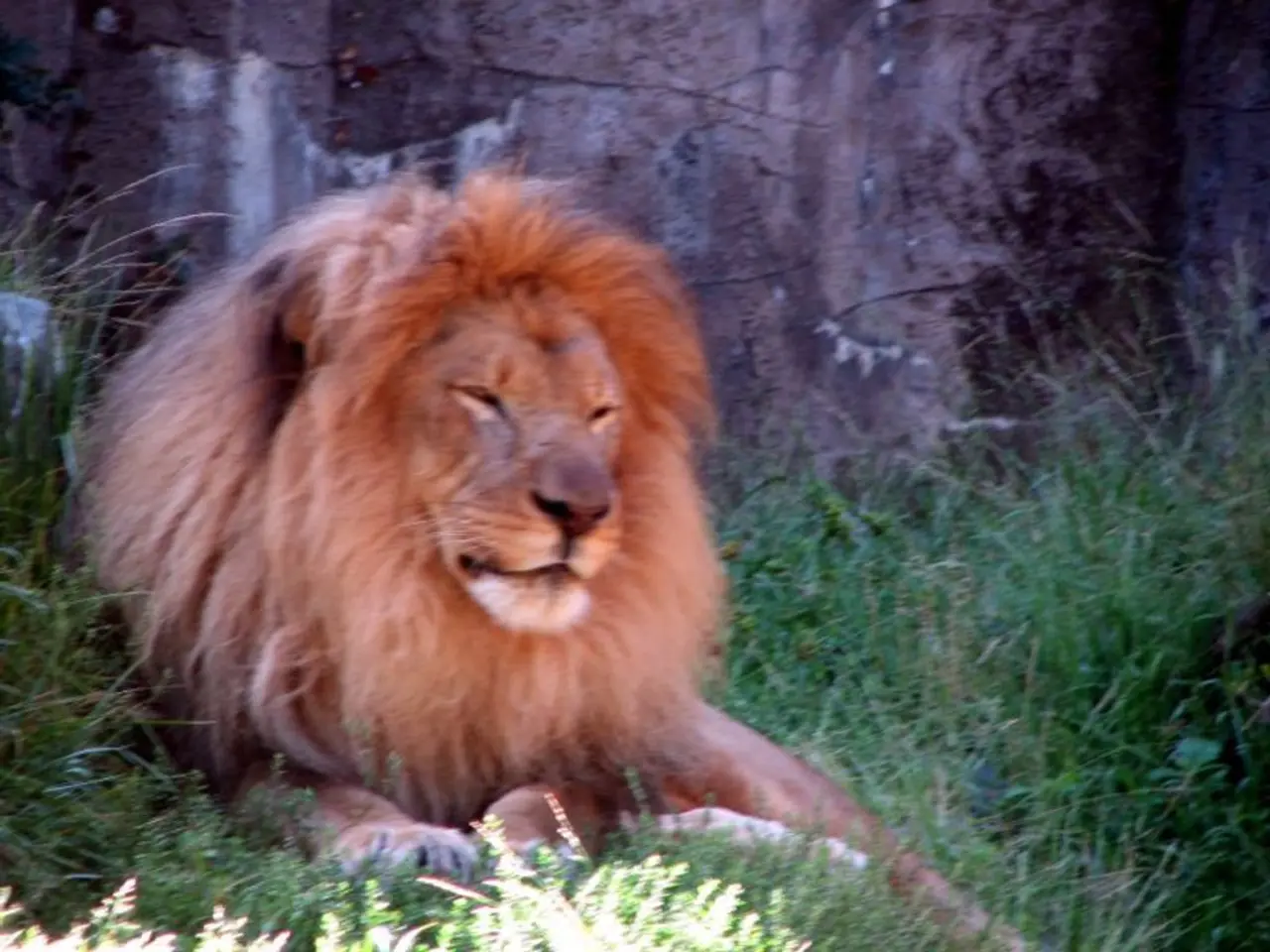Hunt for thrill leads to the slaying of a research lion in Zimbabwe, prompting furor
In the heart of Africa, the hunt of a collared lion named Blondie in Zimbabwe has sparked a heated debate among wildlife groups, conservationists, and the general public.
Zimbabwe's trophy hunting industry generates around $20 million annually, with an average expenditure of $100,000 per hunt by foreign tourists who seek the thrill of hunting the majestic lion. However, the recent hunt of Blondie, a lion involved in an Oxford University research project, has stirred up a storm of controversy.
Blondie, a breeding male lion, was killed within the borders of Zimbabwe, a country that allows up to 100 lions to be hunted each year under regulated conditions. The hunt was legal, as the hunter held the necessary permits and followed Zimbabwe’s trophy hunting regulations.
Regulations in Zimbabwe for lion trophy hunting are strict. A quota system limits the number of lions hunted per year, with permits mainly issued to foreign tourists. The regulations also emphasize hunting older, non-breeding males to reduce negative impacts on lion population dynamics.
Despite the legality of the hunt, Blondie's death was widely condemned due to several factors. Blondie was a breeding male in his prime, wearing a visible research collar. This raised ethical questions, as hunters usually avoid breaking such conventions.
Moreover, Africa Geographic, a safari company, claimed that Blondie was lured out of a protected area and into a hunting zone with bait, a practice that has been controversial but occasionally used in trophy hunting. However, Tinashe Farawo, the spokesperson for the Zimbabwe parks agency, denied any information about Blondie being lured out of the park with bait.
The controversy surrounding Blondie's death has brought renewed attention to the ethics and legality of trophy hunting in Zimbabwe. While some argue that it can raise funds for conservation, others want all wildlife killing for sport to be banned.
Tinashe Farawo defends the hunt, stating that money from hunting is crucial for the nation's underfunded conservation efforts. The hunt complied with Zimbabwean laws and regulations governing lion trophy hunting at the time, but the incident has highlighted the need for a thorough review of these regulations.
The death of Blondie serves as a reminder of the complexities and controversies surrounding trophy hunting in Zimbabwe and Africa as a whole. As the debate continues, the focus remains on finding a balance between conservation, economic benefits, and ethical hunting practices.
[1] Zimbabwe Parks and Wildlife Management Authority (ZimParks) [2] Scientific studies and animal rights groups [3] Oxford University research project [4] Zimbabwe’s National Parks [5] Trophy hunting regulations in Zimbabwe
- The death of Blondie, a lion involved in an Oxford University research project, has led to discussions between Zimbabwe Parks and Wildlife Management Authority (ZimParks) and scientific studies and animal rights groups about the ethical implications of trophy hunting within the country's National Parks.
- Despite Africa Geographic's accusations of luring Blondie out of a protected area using bait, the spokesperson for ZimParks, Tinashe Farawo, denies any such information, highlighting the complexities surrounding trophy hunting regulations in Zimbabwe.
- While some argue that trophy hunting in Zimbabwe could contribute to the nation's conservation efforts due to generating funds, others call for a ban on all wildlife killing for sports, as environmental-science and finance considerations are weighed against ethical hunting practices.




